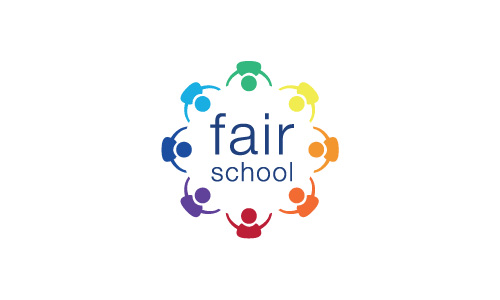A pedagogical and restorative method to improve inclusion of secondary school students with a migrant background in Europe
6/26/23
The European research project Fair School, led by the Universidad Carlos III de Madrid (UC3M), has developed a pedagogical method through restorative practices and social and emotional learning to promote inclusion in intercultural school environments. This Erasmus + research project is led by Helena Soleto, a professor in UC3M’s Criminal Law, Procedural Law and History of Law Department.

The aim of the project was to promote the integration of migrant students into the host country’s educational systems, focusing particularly on those who could suffer discrimination due to their religion, country of origin, language or socio-economic status, among others. To do this, this consortium coordinated by UC3M, which has representatives from different parts of Europe, has developed innovative methodologies aimed at teaching teams, secondary school students and families.
Four main milestones have been reached during the project’s three-year duration. The first of these was the creation of the Fair School methodology, prepared manually for teaching teams and translated into six languages. It includes a conceptual framework based on the construction of narratives, social-emotional learning and restorative practices. It also has a set of activities to be carried out in the classroom with students and their families.
The second consisted of the preparation of four activities called Serious Games, which refers to recreational, short-term activities based on the values of democratic coexistence. These are: “The Message of the Trees”, created in Turkey; “Learn about my culture”, created in Portugal; “Globetrotters”, created in Spain; and “My Perspective”, created in Poland. Each of these games is translated into six languages and addresses topics related to diversity, respect, tolerance and self-care. Their effectiveness has already been tested with over 400 teachers and students in secondary schools in Spain, Turkey, Poland and Portugal.
The third was the creation of five digital modules aimed at teaching staff, with the aim of making them aware of and teaching them the methodology for its subsequent application. The modules are called “The role of teachers as facilitators”; “Restorative Justice”; “Social-emotional Learning”; and “Methodology to be used in secondary schools”. Each one is translated into five languages and lasts 10 hours, including theoretical and practical activities. At the end of each module there is a test for self-assessment of knowledge. This material has been tested with 105 teachers from the four countries belonging to the Fair School consortium.
The last milestone was a pilot test of the methodology in the consortium countries. It lasted six months, with two quarterly implementation cycles. 414 people participated in it, including 396 students and 18 teachers.
In addition, during the three-year duration, other types of relevant activities have been carried out for the proper implementation of the methodology, such as the international meeting of teaching teams from the four consortium schools or the five transnational conferences for coordination and joint work.
The project “Fostering a fair and inclusive environment for secondary school students in intercultural school environments through a new pedagogical method based on restorative practices and social and emotional learning” (Fair School” (reference 2020-1-ES01-KA201-083026) has been funded by the Erasmus+ Programme under the supervision of the Spanish Service for the Internationalisation of Education. The research was coordinated by UC3M, in collaboration with partners from different European countries: the Ignacio Aldecoa Secondary School in Getafe (Spain); the SPEL school network (Portugal); the non-profit organisation SOS Malta; the University of Bialystok and the Princess Anna Sapieha Jabłonowska School (Poland); the Maltepe secondary school and the IAAD research and technological innovation organisation (Turkey); and the private consultancy firm In Dialogue (The Netherlands).

